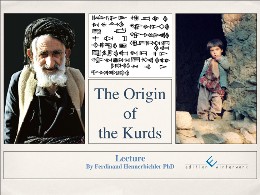New findings - fhe
Main menu
- H O M E P A G E
- THE ORIGIN OF THE KURDS 2011
-
CONCLUSIONS
- Prof. Windfuhr
- Prof. Klyosov
- Indigenous Kurds
- REACTIONS
- THE ORIGIN OF KURDS 2012
- DIE HERKUNFT DER KURDEN 2010
- DIE KURDEN 2004
- e-BOOK 2009
- CURRENT EVENTS 2011-2012
-
ARCHIVE
- Gas-Victims 1988
-
PICTURES
-
ANATOLIA
- VAN ANCIENT
- VAN-HAKKARI
-
KURDISTAN IRAQ
- BARZANI IRAN
- TALABANI
- FOLK COSTUMES
- Arbil
- GHN-45
- GAS-VICTIMS
- KORDESTAN IRAN
- ZAGROS
- PROFILES
- JERUSALEM
-
ANATOLIA
- THE FUTURE OF THE KURDS 2021
- KURD NATIONAL IDENTITY 2019
- PRIVATE PHOTOS
- CV English
- Lebenslauf
- COPYRIGHT & IMPRESSUM
New findings
The Origin of the Kurds
Inter-
New findings: indigenous Neolithic ancestors of Kurds and later Old Iranian speaking immigrants
This fist interdisciplinary study shows that forefathers of Kurds originated ethnically out of indigenous, autochthonous Neolithic populations in Northern Fertile Crescent areas of Near East and Eurasia.
They were millennia later Indo-
This findings are in contrast to common explanation attempts of quite a few researchers, notably linguists, who believe that forefathers of Kurds were originally also in their ethnic beginnings part of Old Iranian speaking groups/elites who immigrated from Central into Western Asia.
This assumptions are mainly based on linguistic considerations. However, newest DNA research of Palaeogenetics and DNA Genealogists who include forefathers of Kurds in their studies disprove convincingly any hypothesis of an equation between ethnic and linguistic origins of Kurds. In contrast, they lead to the conclusion that indigenous Neolithic Northern Fertile Crescent ancestors of Kurds were ethnically not the same people as (Old) Iranian speakers who immigrated from Central Asia.
Therefore, it has to be assumed, that originally Neolithic Northern Fertile Crescent ancestors of Kurds must have spoken in early beginnings Proto-

Ferdinand Hennerbichler: The Origin of the Kurds. Lecture. -